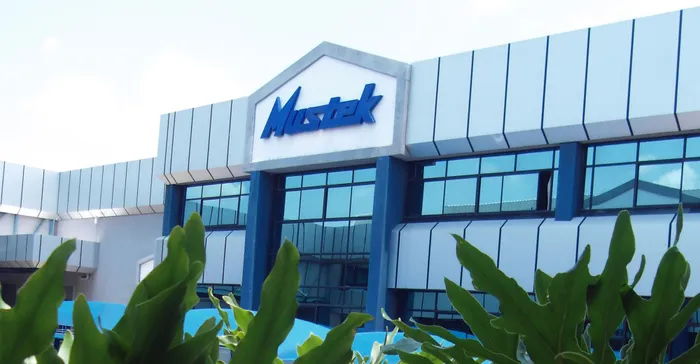
JSE-listed Mustek is the target of a takeover bid by packaging and printing company Novus Holdings, which is in turn seeking to diversify from its printing, packaging and tissue manufacture businesses.
Image: Supplied
Mustek raised its dividend a massive 83.3% to 13.75 cents in the year to June 30, but the payout is still below historical trends.
The ICT distributor and technology solution provider, which only declares a final dividend after evaluating its funding requirements and opportunities to repurchase shares, paid out 7.7 cents a share in the 2024 financial year, and the dividend payout ratio was maintained. But in 2023, the dividend was 77 cents a share, it was 76 cents in 2022, while the 90 cents in 2021 was the group’s biggest dividend over 10 years.
In terms of the annual results released Friday, the much higher dividend followed a sharp increase in the total income for the year, to R42.31 million from R21.85m the previous year.
The group is currently the target of an acquisition bid by JSE-listed printing, publishing, packaging, and education company Novus Holdings - it already holds a 39.9% stake in Novus. Novus won a High Court appeal in April 2025, overturning a ruling by the Takeover Regulation Panel (TRP) that had withdrawn approval of the deal. The court declared the TRP’s decision unlawful and ordered Novus to proceed with publishing its offer circular.
“At the date of this publication, Novus has not received a certificate of compliance from the TRP in relation to this mandatory offer. Novus, as the offeror, cannot proceed…until such time as the TRP has issued a compliance certificate,” Mustek's directors said.
Revenue fell 14.9% to R7.2 billion. The gross profit margin increased to 13.3% from 12.2% at the same time last year. Headline earnings increased to 73 cents from 67 cents.
Mustek’s directors said their 2025 year had unfolded in a context of complexity and pressure.
On one hand, global demand for digital technologies was strong. On the other, South Africa grappled with economic stagnation, high unemployment, public sector bottlenecks, and persistent infrastructure failures.
“This duality shaped the group’s approach to managing risk, identifying opportunities, and delivering resilient performance. We are encouraged by the improvement in working capital, net finance costs, and cash generated from operations, which is a result of our efforts to enhance liquidity and strengthen our financial position despite the difficult trading conditions,” they said.
CEO Hein Engelbrecht said in the results that they were cautiously optimistic about the new financial year.
“The market remains complex, but the opportunities are real and potentially significant. With a sharpened cost base, a more focused portfolio, and an active pipeline, Mustek is ready to execute and continue delivering trusted technology for real-world impact,” he said.
Post year-end, on August 1, 2025, Mustek acquired a 51% stake in a newly incorporated entity, Business AI. Business AI is developing a B2B marketplace portal for artificial intelligence, providing enterprises with a single environment to access vetted AI vendors, products, platforms, solution providers, and data centres.
“This accredited portal model ensures that businesses can adopt AI with confidence, knowing that each listing has been reviewed for quality, relevance, and security before becoming accessible,” Mustek's directors said.
Post year-end, an investment property in Kenya was being actively marketed for sale.
From August 29, 2025, Brotek entered into a five year loan facility with Nedbank. The value of the facility was R50m.
Engelbrecht said key focus areas for management in the new financial year were to preserve and grow profitability from the core IT distribution business, expand the group’s services segment to enhance current offerings, and optimise capital allocation across the group.
Driving opportunities into the future were the growth of AI, the ICT skills shortage, cybersecurity, drone technology, and cloud and software solutions.
From a product perspective, the end of support for Windows 10 and the transition to Windows 11 remained significant drivers of demand, particularly in commercial sectors.
"This upgrade cycle is anticipated to be longer than previous operating system transitions, extending into 2026, as devices procured during the Covid period will also require replacement. Adoption of AI PCs is highest among premium consumer segments, while non-education commercial organizations are integrating these devices as part of the shift to Windows 11."
Solar and backup power volumes had softened, in line with reduced loadshedding. "However, we continue to see strong long-term relevance for our green energy offering, particularly in commercial and industrial applications, where performance, service and total cost of ownership remain differentiators," the group said.
Visit:www.businessreport.co.za